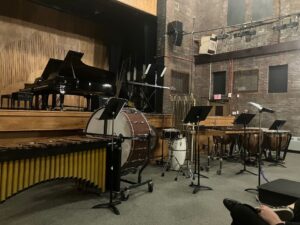Catholic University Declassified School Survival Guide: English Majors

Image courtesy of californialifehd.com
By Caroline Morris
Catholic University’s English department is not what it first appears. Yes, the entire staff is now squished into the tiny Marist Annex after Marist Hall was condemned, but everyone knows to never judge a book by its cover, or a department by its building.
What lies within the Marist Annex is what truly distinguishes the English major at Catholic University. The faculty boast degrees from Harvard, Brown, Columbia, Cambridge, and the Iowa Writer’s Workshop, one of the most prestigious programs in the country for creative writing. The department also makes a strong effort to foster community among its students and faculty. The English Society meets three times a semester to discuss extracurricular literature and amidst the online transition has initiated a biweekly virtual “tea” to offer fun and camaraderie to students. When school is in person, assistant professor Dr. Megan Murton will even invite her students to Opus Hall for movie nights associated with classic pieces of literature. The words of Shakespeare fit perfectly in describing Catholic University’s English department: “Though she be but little she is fierce.”
Many people may think that being an English major is all about participation and that there are no wrong answers. Sadly, that is not the case; there are indeed right and wrong answers in English.
“For CUA, when it comes to any question about poetry the answer is always Milton,” said senior Lauren Goodwin.
A piece of advice from junior Catherine Cerroni is to never underestimate how long it takes to do the readings. Any English major will attest that at one point, or many, they have thought, “Yeah, I can do this reading at breakfast,” only to swiftly realize that they had barely made it five pages in and it was already class time.
Something every English major must learn is that although you probably can write a paper the night before, you probably shouldn’t. Taking even a few hours away from the paper before editing can have a huge impact on the final draft.
And yes, it has to be said: utilize the Writing Center. Every English class hears the Writing Center spiel and sometimes it can seem like a broken record, but it’s true that having another set of experienced eyes look at a paper can change it for the better. Even making an appointment can help stop the inevitable procrastination that accompanies paper writing.
But being an English major is not just logging hours behind books and Google Documents. It can also be incredibly fun, rewarding, and bonding. There are universal experiences for English majors at Catholic that are incredibly weird and weirdly incredible.
“A rite of passage for any English Major is practicing your Middle English poetry recitation in front of your roommates, who are probably wondering what in the world you are actually studying, and if it is, in fact, English,” Goodwin said.
She is referring to the required memorization of the first 18 lines of Chaucer’s The Canterbury Tales that all English majors must perfect.
“I loved learning them, and I still recite those lines at the most random moments to my friends and family who think I’m casting some sort of strange, foreign spell on them,” said junior Christopher Vitale.
Experiencing these strange and funny aspects of an English degree results in a special bond between majors forged in the crucible of literary geek-ature.
“Dr. Mack would say the craziest things in class, and it was just so ridiculous that we all started writing them down in our notebooks so we would never forget them,” Cerroni said.
But amidst the long nights parsing through Shakespeare and reveling in the inside jokes, there are great benefits to studying English.
“I think my favorite part about being an English major is that I get to dissect incredibly meaningful literature under lenses like philosophy, theology, morality, and artistry, and my greatest privilege as an English major is that I am greeted in each course with the opportunity to explore the nature of the human experience,” Vitale said.
Studying English is in pursuit of a degree, yes, but it can truly change how one sees the world and interacts with it. Studying Romantic poetry reconnects a student with the beauty of nature, reading Wilde makes the class question what art truly is, and going back to the beginning with Beowulf enlightens majors to the original stories that are still being retold today.
So how does a student survive being an English major: By making it more than just a degree. Any less than that means you haven’t learned enough yet. In the words of Holden Caufield, “I don’t know exactly what I mean by that, but I mean it.”







